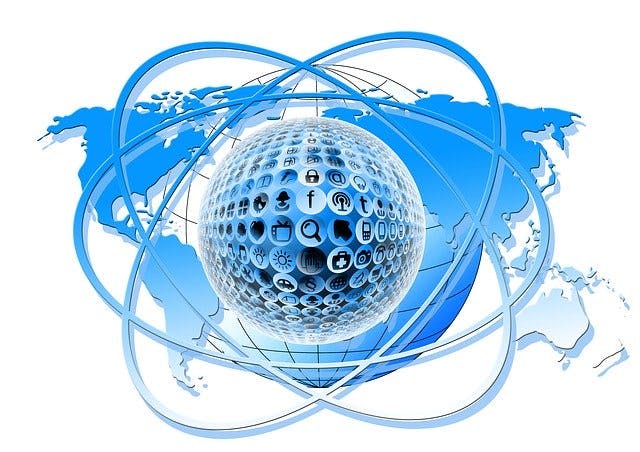
There are certain security risks when connecting to the Internet, which means that you need to understand how to use it safely, too. You can use the Internet to learn new things, to share information, and to communicate with other people. These terms are words you will probably encounter as you browse the Internet.
Adware: Adware is usually installed without you realizing it, and these computer programs display advertising.
App: An app is a program or software that you use for a specific purpose. People usually download apps to a mobile device.
Blacklist: A blacklist is a list of websites, keywords, or usernames that you block on your computer so that your Internet searches don't include them.
Bloatware: Bloatware is a type of software that takes up lots of disk space and memory but isn't useful enough to justify it. Bloatware often comes pre-installed on a new computer.
Blog: A blog is a personal website that people use to share their opinions or information.
Bookmarks: Bookmarks are Web addresses you store in your Internet browser so you can find them easily.
Bot: A bot is a program that can perform processes independently. Often, bots consist of malware installed on a computer without the owner's knowledge.
Browse: Browsing the Internet means visiting websites.
Browser: A browser is a program used to visit Web pages.
Chat Room: A chat room is a Web page or part of an app where visitors communicate with each other in real time by typing in messages.
Click: Clicking on something on the Internet involves moving the cursor so it's over a word or an image and pressing the mouse button. When you click with a mobile device, you usually use your finger or a stylus.
Content Filter: A content filter is a way of limiting access to the Internet. Parents might use a content filter to restrict children's access to some websites.
Downloading: Downloading a file means requesting it from the Internet or another computer and copying it onto your computer or mobile device.
E-Commerce: E-commerce means buying or selling something over the Internet, typically from a website.
Email: Email stands for "electronic mail," which lets you write letters or shorter notes to people online.
Facebook: Facebook is a social media platform that lets users create profiles and then communicate with others by sharing information, pictures, and videos.
Firewall: A firewall is a program that helps protect a computer from viruses and hackers that might try to tamper with it.
Forums: Forums are sections of websites where people can post messages and others can reply to them.
Hacker: A hacker is a person who wants to gain access to other people's computers or mobile devices without their permission.
Homepage: A homepage is the first page that appears when you visit a website.
IP Address: IP address stands for internet protocol address; it is an identifying number that is associated with a specific computer or computer network. Example local IP addresses are 10.0.0.1 and 192.168.1.254
Link: A link is also known as a hyperlink. A hyperlink is what you click on to take you to a different Web page.
Malware: Malware is malicious software, programs that may steal information, damage a computer, or open it up for hackers to access it.
Navigation: Navigation is what you do when you're moving around the Internet.
Online: Being online means that you are connected to the Internet.
Password: A password is a series of letters, numbers, and symbols that you create to log onto a computer, mobile device, network, or website.
Router: A router is a device that passes information between networks. A Wi-Fi router sends information from an Internet cable to other devices wirelessly.
Security Updates: Software engineers often release new versions of programs to fix problems or add features. When a new security update is released, users should install it as soon as possible to keep the program secure.
Surf: Surfing the Internet means browsing to different websites.
Upload: Uploading to the Internet is copying something from your computer to a website.
Virus: A virus is software that will do something harmful. Viruses might steal information, delete files, or take over a computer system.
Web Page: A Web page is one page on a website.
Wi-Fi: Wi-Fi is the wireless technology that allows devices to connect to the Internet without cords.More Historical Information on the Internet: